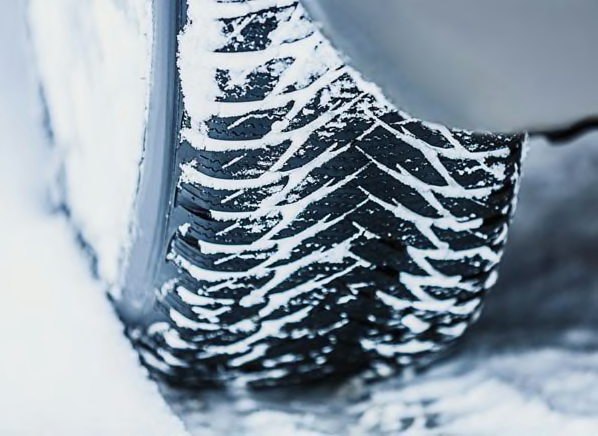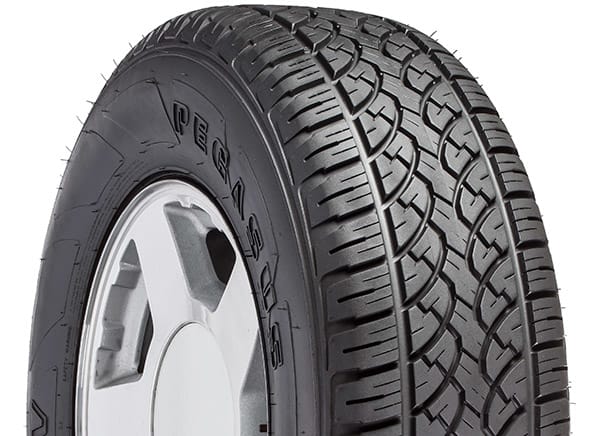Sign In

Menu
Suggested Searches
Recent Searches
Suggested Searches
Product Ratings
Resources
Chat With AskCR
Resources
All Products A-ZThe payment for your account couldn't be processed or you've canceled your account with us.
Re-activateMy account
Sign In
My account
Sign In


If you frequently drive on snow-covered roads, there is no substitute for winter tires. They have a more aggressive tread pattern and rubber formulated to stay pliable in freezing temperatures. That means they provide the most traction for accelerating and braking on snow and even ice. The trade-off often is reduced grip and lower handling limits on cleared roads compared with all-season tires. Snow tires also tend to wear out faster, especially once the snow thaws.
For peace of mind when driving in winter conditions, you'll want to budget for four winter tires. Purchasing a second set of sturdy wheels—nothing fancy; after all, it's winter—on which to mount your winter tires will make it easy to change galoshes when the seasons change.

Consumer Reports has removed its Ratings for the Pegasus Advanta SUV tire originally reported in the November issue. Although we purchased the tire through normal retail channels, we have since been informed by API—the owner and distributor of the Pegasus brand in the U.S.—that the tire we tested was not produced nor distributed by an authorized Pegasus vendor.
See our complete investigative report: "'Counterfeit' tires pose consumer risk."
(Prices reflect tested sizes.)
• Michelin X-Ice X13, $120
Our top-rated winter tire, with excellent snow traction and ice braking, and a comfortable, quiet ride.
• Hankook I*cept Evo, $91
A good all-around choice, combining good traction and handling on dry and snow-covered roads.
• Pirelli Winter 210 Sottozero Serie II, $116
Excellent resistance to hydroplaning, with very good snow traction and ride comfort.
• Uniroyal Tiger Paw Ice & Snow II, $99
Another high scorer for snow traction, and very good stopping grip on ice.
• Bridgestone Blizzak WS70, $114
Excellent for severe weather and ride comfort.
When to choose all-season tires
For occasional snow with light accumulation, all-season tires may be all you need—especially if your car has front- or all-wheel drive. But if the tires are worn, traction will be greatly reduced in snow. An easy way to check for wear is to slide a quarter into the tread, with George's head down and facing you. If you can see the top of his head, start shopping for tires.
You will notice "speed ratings" on these tires that are far faster than any law-abiding citizen drives in America—never mind in the snow. A higher speed rating means better grip and handling, but sometimes at the cost of a shorter tread life.
T speed rated (118 mph)
These are common on older cars, with good all-weather grip and long tread life.
• Michelin Defender, $130
• Continental ProContact EcoPlus, $100
H speed rated (130 mph)
Original equipment on many newer vehicles, H- and V-speed models combine a good balance of performance in all conditions with decent tread life.
• Michelin Primacy MXV4, $138
• Continental PureContact, $135
V speed rated (149 mph)
Geared a bit more toward performance, but they will do fine in the slush.
• Continental PureContact, $145
• Michelin Primacy MXV4, $158
UHP all-season (150-plus mph)
Found on many sports cars, these tires are designed more for cornering grip and steering response than ride comfort or long tread life.
• Michelin Pilot Sport A/S 3, $175
• Goodyear Eagle F1 Asymmetric All-Season, $166
• Hankook Ventus S1 noble 2, $165
• Pirelli P Zero Nero All Season, $132
• Cooper Zeon RS3-A, $153
This artlcle also appeared in the December 2014 issue of Consumer Reports magazine.
 Build & Buy Car Buying Service
Build & Buy Car Buying Service
Save thousands off MSRP with upfront dealer pricing information and a transparent car buying experience.
 Get Ratings on the go and compare
Get Ratings on the go and compare
while you shop